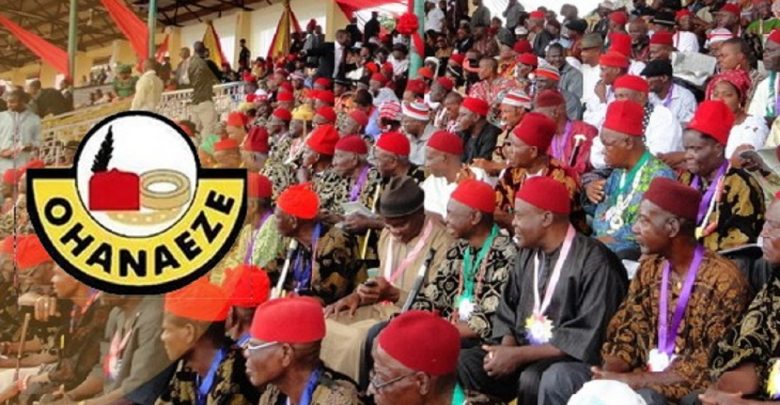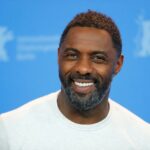The Igbo didn’t begin as the political outcasts of Nigeria’s seeming tripartite system, the Yoruba were. In the buildup to the 1959 general elections, which were a pathway to the promised self-government, the political ambitions of the three regions were at play. No region instantly dominated the political space, and so it triggered the quest for a coalition in the then parliamentary system.
The Northern Region-controlled Northern People’s Congress (NPC) and the Eastern Region’s National Council of Nigeria and the Cameroons (NCNC) allied to neutralize the threats of Chief Obafemi Awolowo-led Action Group (AG) from the Western Region. The two parties shared the spoils of the elections, with NPC’s Alhaji Abubakar Tafawa Balewa as Prime Minister and, when Nigeria became a republic in 1963, NCNC’s Nnamdi Azikiwe as President. The AG fought to exist as the opposition, and it was so disadvantaged that the coalition government took over control of the Western Region following the 1962 crisis in the Western House of Assembly.
The Igbo, also, didn’t become a charity project in Nigerian politics after the first coup of 1966. The Northern and Eastern alliance to neutralize the Western bloc was destroyed by the 1962 census crisis. As the bigger partner in the coalition, the Northern Region dominated policymaking and its priorities were perceived as a “Northernization” agenda. The census was seen as the North’s attempt to legitimize its dominance through falsification of figures, for the largest population was required by the three regions to attract the most parliamentary seats and revenues.
The Western and Eastern Regions combined, according to the fresh census of 1963, had less population than the North, which had 29,758,975 people out of the total of 55,620,268 counted. The NCNC challenged the figures and fought to stall what appeared like a declaration of its redundancy in the federation. These figures would go on to haunt the South even as more states were created in subsequent years, especially under the unchallenged military regimes.
The NCNC sought the partnership of the AG, which had disintegrated after that infamous crisis in the Western House of Assembly. A faction called the Nigerian National Democratic Party (NNDP) emerged to undermine the old power structure, and it became a partner of the NPC in the 1964 elections—a union called the Nigerian National Alliance. The AG and the NCNC formed the United Progressive Grand Alliance (UPGA).
When, about two years later, young military officers of Igbo extraction led that coup that consumed the North’s hold on power, killing political leaders and military officers from the Northern Region and Western Region, the line was drawn. It gave an Igbo officer a chance to serve as Nigeria’s first military Head of State. His reluctance to have the coup plotters tried instigated a counter-coup in the June of that year, and then a civil war in 1967.
Since the war, the Igbo have become victims of systemic exclusivity. They are desired to stabilize the federation, but a cloud of trust has been hovering over their quests for power. Even though the political elites from the other regions seemed to have conspired to bar them from the presidency, and this was obvious at the onset of the second republic in 1979, the adopted presidential system of the Second Republic, unlike the parliamentary before it, wasn’t just about seats in the parliaments. It was about numbers, and so it’s unsurprising that all the major parties in the elections presented an Igbo running mate.
Alex Ekwueme’s function as Vice President to Shehu Shagari between 1979 until they were toppled in the 1983 coup, healed the wounds of postwar Nigeria and reassured the Igbo of a place in the federation. When the military again struck and triggered a regime change in 1985, an Igbo naval officer, Commodore Ebitu Ukiwe, was the second-in-command. Like Ekwueme, he was a symbol of a slow-paced integration process, and a promise of the Igbo’s place in the State House.
Since Ukiwe’s stint ended in 1986, the Igbo have not occupied even the second position to which they were relegated. It’s as though the Muslim – Muslim ticket that won the annulled 1993 presidential elections—an alliance of the Southwest and the North by the Social Democratic Party (SDP)—was an experiment to test the political futility of the Igbo. The victory was despite the other half of the two-party system, National Republican Convention (NRC), having an Igbo man as vice-presidential candidate.
The Igbo were a winning partner in the national elections of the first two republics, but fourth republic political culture has reversed such socialization and relegated them to Presidency of the Senate, which is the third in the nation’s political hierarchy. That, too, is no longer obtainable. And it’s scary that Nigeria is getting used to power-sharing without the Igbo.
Earlier this year, on his Twitter, presidential candidate of Young Progressives Party (YPP) in the 2019 general elections, Dr. Kingsley Moghalu, attempted to unravel the reason for the Igbo’s journey to redundancy: ‘Nigerian Igbo complain about political “marginalization”. While true because of the civil war, and while Nigeria needs “a new grand bargain” between its ethnic nationalities, the Igbo themselves have harmed themselves. They must first shed victim mentality.’ He further argued that the Igbo must ‘address the disadvantage of being “led” by selfish, greedy and self-centred political elite masquerading as political and social-cultural leaders who are the first to shoot down their own.’
Moghalu’s thesis underplayed the more critical question of the Igbo’s political apathy as propelled by separatist groups, especially, in recent years, the Indigenous People of Biafra (IPOB). Led by the polarizing and strangely influential Nnamdi Kanu, the movement even urged the Igbo to boycott the 2019 presidential elections and only reversed this position two days to the elections.
Kanu-led IPOB had thrived on bigoted commentaries on, and hatred of, potential regional partners, especially the Hausa-Fulani. It’s unsurprising that Kanu’s inflammatory audio during the #EndSARS protests in Lagos was interpreted as urging the Igbo to destroy Yoruba-owned properties, including the invasion of the Palace of the Oba of Lagos who, ahead of the 2015 general elections, asked the Igbo to either vote for the All Progressives Congress (APC) candidate, Akinwunmi Ambode, or be drowned in the lagoon.
This thaw between the Igbo and the other regions, along with the victimization that’s trailed the Biafra project, has produced generations of politically apathetic Igbo whose disbelief in Nigeria was unequivocal. Such a mindset was demonstrated recently by a spokesman of the Movement for the Actualisation of the Sovereign State of Biafra (MASSOB), Sunday Okereafor. He asked the Igbo political class to suspend the idea of presidency in 2023, citing the systemic marginalization of his kinsmen as the reason.
Such boycott, sadly, is the symptom Moghalu outlined in questioning the Igbo elite as divided and self-centred. Because, as IPOB, MASSOB and other groups and individuals promote an electorally catastrophic agenda, cleverer politicians from the region defy that call, preferring to secure a seat at the table. With the Igbo’s electoral redundancy in 2023 already being spelt out by themselves, and the elite divided on the aspiration for President, the dream of overturning their place as a charity project in the Nigerian federation, is nowhere on the desk of any political party that prioritizes number over idealism.

 Join Daily Trust WhatsApp Community For Quick Access To News and Happenings Around You.
Join Daily Trust WhatsApp Community For Quick Access To News and Happenings Around You.


